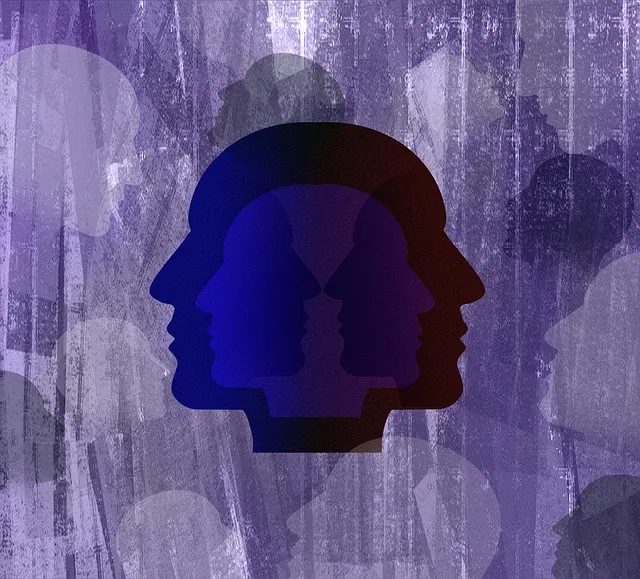Cultural competency training empowers healthcare providers in Boulder to offer improved mental health services through Kaiser by fostering empathy and understanding. Tools like Crisis Intervention Guidance, Social Skills Training, and Mindfulness Meditation enhance patient connections, ensure tailored care, and address barriers to access. This holistic approach makes it easier for Boulder residents to navigate their emotional healing journeys via Kaiser's extensive network of resources.
In today’s diverse healthcare landscape, cultural competency is essential to ensuring equitable access to quality care. This article explores strategies for healthcare provider training in cultural competency, with a focus on mental health services through Kaiser in Boulder. Understanding cultural nuances and barriers to care is crucial for improving patient outcomes. We delve into best practices, effective implementation methods, and the transformative power of empowered providers in enhancing mental health service accessibility.
- Understanding Cultural Competency in Healthcare
- Kaiser's Role in Mental Health Service Access
- Strategies for Effective Training Implementation
- Empowering Providers: Enhancing Patient Care Outcomes
Understanding Cultural Competency in Healthcare

Cultural competency in healthcare refers to the ability of providers to effectively understand, interpret, and respect diverse cultural backgrounds, beliefs, and behaviors among patients and communities. This is particularly important given the growing diversity of patient populations across the country, including Boulder, where how to get mental health services through Kaiser becomes a nuanced question for many. By embracing cultural competency, healthcare professionals can ensure equitable access to care that meets the unique needs of every individual.
In this context, Crisis Intervention Guidance, Social Skills Training, and Mindfulness Meditation are valuable tools that foster cultural sensitivity. Crisis Intervention Guidance equips providers with strategies to help patients navigate traumatic or high-stress situations, while Social Skills Training improves communication and interpersonal skills, enabling better connections between healthcare workers and diverse patient groups. Mindfulness Meditation, on the other hand, promotes understanding of different cultural perspectives and enhances empathy, leading to more compassionate care. These approaches not only enhance the quality of healthcare services but also create a supportive environment where patients feel heard, respected, and understood.
Kaiser's Role in Mental Health Service Access

In Boulder, Kaiser plays a pivotal role in enhancing mental health service accessibility. As a leading healthcare provider, Kaiser’s extensive network and resources enable residents to navigate the path to emotional healing processes with ease. They offer a comprehensive range of mental health services tailored to meet diverse needs, ensuring that everyone has equal opportunities for well-being. Through their dedicated teams of professionals, Kaiser provides outpatient care, therapy sessions, and support groups, fostering an inclusive environment where individuals feel comfortable seeking help.
Kaiser’s commitment to the community goes beyond clinical services. Their Community Outreach Program Implementation actively reaches out to under-served populations, breaking down barriers to mental health care. By incorporating compassion cultivation practices into their training, Kaiser cultivates a culture of empathy and understanding among healthcare providers. This approach not only improves patient experiences but also strengthens relationships within the Boulder community, fostering a more connected and resilient society.
Strategies for Effective Training Implementation

Effective cultural competency training for healthcare providers involves a multi-faceted approach tailored to engage participants and facilitate meaningful learning. One key strategy is incorporating interactive workshops that go beyond traditional lectures, encouraging role-playing scenarios and small group discussions to practice communication skills in diverse contexts. This hands-on method allows trainees to experience firsthand the nuances of different cultural backgrounds, fostering empathy and improving patient interactions.
Additionally, integrating Emotional Well-being Promotion Techniques into the curriculum empowers healthcare providers with tools to recognize and address emotional needs. Emotional Intelligence training helps professionals cultivate awareness of their own emotions and those of others, which is crucial for providing compassionate care, especially during crises. Crisis Intervention Guidance should be a cornerstone of the program, equipping staff with strategies to de-escalate tense situations and connect patients with appropriate mental health services, such as those available through Kaiser in Boulder.
Empowering Providers: Enhancing Patient Care Outcomes

Cultural competency training is a powerful tool to empower healthcare providers, especially when it comes to addressing mental health concerns. By equipping professionals with the skills to understand and connect with patients from diverse backgrounds, care outcomes significantly improve. This is particularly evident in communities like Boulder, where accessing mental health services through Kaiser or other healthcare networks can be enhanced by this training.
When healthcare providers are culturally competent, they create a safe and supportive environment for patients, fostering open communication. This enables patients to express their emotional regulations and seek anxiety relief more effectively. Furthermore, risk management planning for mental health professionals becomes easier as they can anticipate and navigate cultural barriers, ensuring quality care tailored to each individual’s unique needs, including those who may face challenges in accessing services due to their background or specific circumstances.
Cultural competency training is a game-changer in healthcare, especially for improving access to mental health services, as demonstrated by Kaiser’s innovative approaches. By empowering providers with effective strategies, organizations like Kaiser can ensure diverse patient populations receive quality care tailored to their unique cultural needs. This not only enhances patient satisfaction but also leads to better health outcomes. For those in Boulder seeking mental health services through Kaiser or similar institutions, understanding and embracing cultural competency is a vital step towards fostering inclusive and effective healthcare environments.






